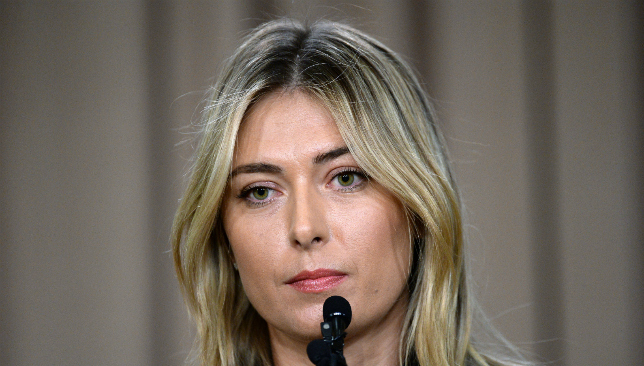
Just like the announcement of her failed drugs test last March sent shockwaves across the sports world, the reduction of Maria Sharapova’s ban to 15 months has been a hot topic ever since the Court of Arbitration for Sport announced its ruling on Tuesday.
Unlike the ITF’s (International Tennis Federation) tribunal decision that handed Sharapova a 24-month ban for taking meldonium – which was added to the prohibited substances list at the start of 2016 – CAS found that Sharapova bore “no significant fault”.
Sharapova had argued that she had been taking meldonium for 10 years for medical reasons based on her doctor’s orders and that she was unaware that it had been added to WADA’s (World AntiDoping Agency) prohibited list.
Her agent Max Eisenbud is the man responsible for checking the WADA list and he failed to do so at the end of 2015.
And while the ITF found it unreasonable for Sharapova to delegate that task to her agent, who in their words is unqualified to monitor her antidoping responsibilities, CAS disagreed and decided Eisenbud was a fair choice.
Sharapova's starting to believe ITF tried to make an example out of her. #Tennis https://t.co/gpRGF9Zk3t
— beIN SPORTS (@beINSPORTS) October 5, 2016
Going through the report posted by Sharapova’s legal team, her lawyers understandably covered all angles, including the fact that the ITF’s efforts to inform their players about the changes to the WADA list paled in comparison to other sports.
They also showed how poorly the research studies were that prompted WADA to add meldonium to the prohibited list. Ever since the CAS ruling was announced, Sharapova and her lawyer John Haggerty have made sure to point the finger at the ITF.
Britain’s Daily Telegraph is even speculating legal action might be taking against the ITF. When Sharapova stepped forward in March and announced her failed test, she said: “I did fail the test and I take full responsibility for it.”
Sharapova's former coach is skeptical she can return to the top. #Tennis https://t.co/4iA922RNfy
— beIN SPORTS (@beINSPORTS) October 5, 2016
Now she is playing the blame game which does not sound like a good idea. She’s had her suspension reduced, which effectively is a win (the minimum ban she could have received was 12 months, she is getting 15), and while it’s understandable she’ll do everything to try to reverse the damage to her reputation, waging a war against the ITF is not the way to go.
If she truly wants to accept responsibility, Sharapova should just wait out her suspension in peace, work for her comeback, and let her results do the talking when she’s back.
The fact that the ITF’s ruling was overturned already places them under scrutiny, but Sharapova must also make it clear that she understands that even though this was unintentional, she did compete, at a slam, with a banned substance in her system.
The fact that it was meldonium – a substance that was controversially added to the list this year – and that she feels she deserves to have been notified directly by the ITF that it was being added, does not mean she should automatically assume zero responsibility.